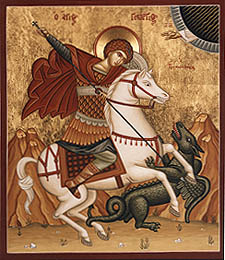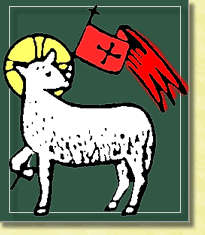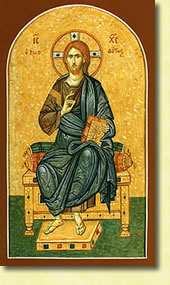With my retirement, I thought it might be helpful to provide a short summary of who I am, my life in the church, how I became theologian, and my teaching career. If you find it interesting, enjoy! If not, that’s fine too.

I cannot remember a time when I did not have faith in Jesus Christ. Evangelical (or fundamentalist) Christianity goes back several generations on both sides of my family, although the name we preferred was “born-again” Christian, or, simply, “Christian.” When I was five years old, I “asked Jesus to come into my heart” and forgive my sins. I was baptized at the age of seven. Luther used to say, “Remember your baptism!” I am glad that I can remember mine.
My family went to church Sunday mornings and evenings and to Wednesday night prayer meetings. There were occasional week-long revival meetings, and Vacation Bible School in the summers. I used to set up my toy box as a pulpit, and preach sermons to my younger sister and her dolls. I read the Bible constantly. I used to worry that my school-mates were not “saved,” and felt guilty that I did not “witness” to them, i.e., tell them about Jesus.
Aside from a certain amount of guilt, my Baptist upbringing gave me a spirituality focused on a personal relationship with Jesus Christ, a sense that Christians had to be different from other folks, a knowledge and love of the Scriptures, a regular practice of daily prayer, and a way of responding to certain types of worship. Hymns like “Amazing Grace” can still give me goose bumps.
At the age of sixteen, I attended a church camp retreat where I “came under conviction” (to use the revivalist terminology) that God was calling me to be a pastor. From this point on, I assumed as a matter of course (as did my family, friends, and pastor) that I was going to be a “preacher-boy.” This decision marked a definite transition in my Christian experience. I think it was the time at which I first affirmed an adult Christian faith.
Throughout my high school years, I was constantly involved in church activities. I was president of my church youth group. I shared tracts with people in the city park. I earned a reputation in high school for being a “Jesus Freak.” (This was at the height of the “Jesus Movement.”) I attended a Campus Crusade for Christ evangelism conference with 100,000 other teenagers in Dallas, TX called “Explo’ 72,” where I heard Billy Graham preach.
But I also began a gradual intellectual and spiritual awakening. I discovered the writings of C. S. Lewis and J. R. R. Tolkien, and their literary circle – George MacDonald, Charles Williams, Dorothy L. Sayers, G. K. Chesterton. During my senior year in high school, I somehow found time to read through Tolkien’s Lord of the Rings, and the central writings of Lewis’s literary corpus, both fiction and non-fiction.
During my college years, I attended a small evangelical liberal arts college. My sophomore year in college, I took a required introductory philosophy course, and discovered that I loved philosophy. I majored in philosophy, which led me to discover not only the classical pagan philosophical tradition (Aristotle, Plato), but also the western Catholic philosophical and theological tradition, especially Augustine and Thomas Aquinas. I read modern Thomists like Etienne Gilson, and Eric L. Mascall. I also discovered the twentieth century theological tradition, especially the critical orthodoxy of Karl Barth, Emil Brunner, Dietrich Bonhoeffer, and the Niebuhr brothers, but also Wolfhart Pannenberg (whom I especially liked at that time), and the “biblical theology” of figures like Walther Eichrodt, John Bright, Oscar Cullmann, and Joachim Jeremias. A small group of like-minded friends and I used to spend hours discussing philosophy and theology (along with a couple of influential faculty members), both inside and outside regular classroom hours.








